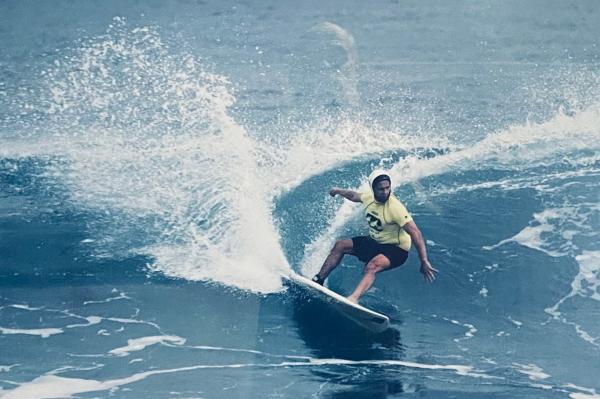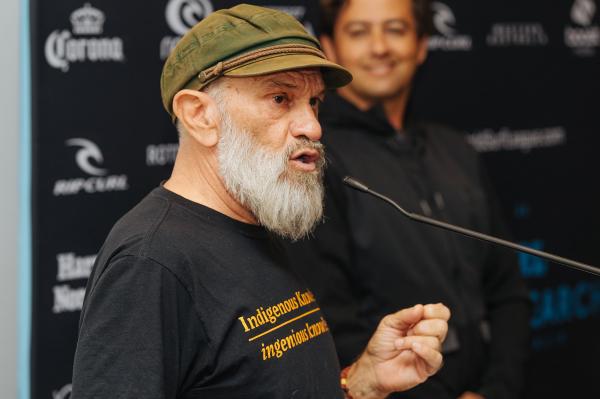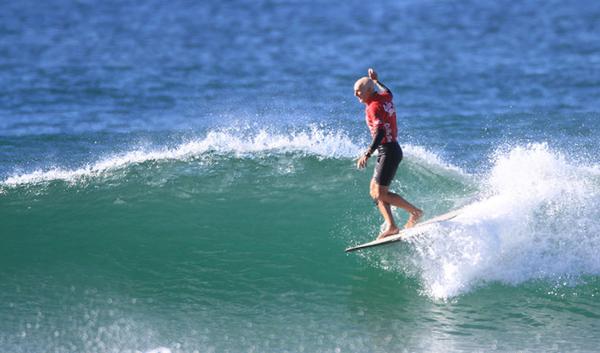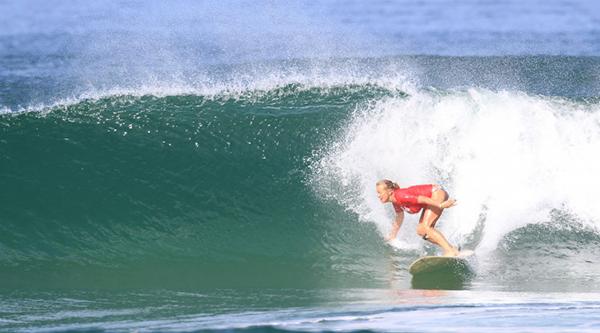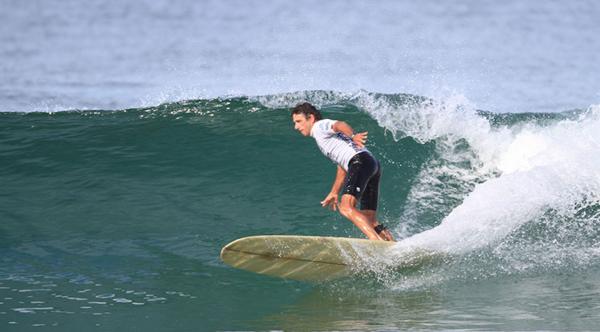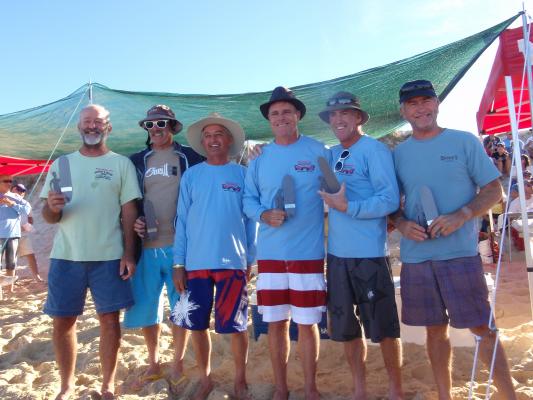Surf journo Sean Doherty, a former Tracks editor and now the owner/editor of Surfing World and chairman of the Surfrider Foundation, is fast developing into the conscience of Australian surfing.
A guy who writes with a light touch yet takes you deep into the issues, Seano tells it like it is, whether it’s equal purses for women, the oil wars or the black/white cultural divide. And so it was when surfer Jack Lewis sent me a link to Seano’s latest on Surfline early on Tuesday morning. I was halfway through a Brine column about something completely different, but I thought that this was so relevant to us right now, that it needed further airing.
Doherty’s article, “What are we gonna do about it?”, came in the wake of the recent World Surf League season-closing contest on Rottnest Island, and referenced the role played in it by Whadjuck Nyoongar elder and academic Lenny Collard, who is also a fine local surfer. As soon as I began reading it, I understood why Jack Lewis, who has played a significant role in introducing the Kabi Kabi youth from Cherbourg to the pleasures of surfing, had brought it to my attention.
Elsewhere in today’s paper, Kabi spokesperson Brian Warner’s brief but groundbreaking speech about truth telling, made in Hastings Street the other night, is quoted. Brian didn’t hold back, and in Seano’s article, nor does Uncle Lenny.
As a guest on the global WSL broadcast, Lenny explained, “in between (descriptions of) backhand rotors and rock ‘n’ roll floaters, the island’s dark colonial past as an Indigenous prison during the Frontier Wars. Uncle Lenny’s words carried a powerful weight of history. He described what happened on the island as ‘dark deeds on a sunny land’. For the usually sugary WSL broadcast it was uncharted territory.”
Doherty continued: “He saved his best line for last. ‘Someone asked me, do you want the WSL to come back?’ Lenny paused for dramatic effect before answering, ‘I thought… nah, probably not.’ Lenny immediately achieved cult status.”
Doherty goes on to explain that Wadjemup, the Indigenous name for Rottnest, “is the final resting place of 373 Indigenous patriots; Nyoongar, Njamatji and Wongai men from all over the west, brought to the island on the chain as prisoners between 1838 and 1904. Lenny describes Wadjemup today as ‘a conflicted space’ as the true history of the island becomes more widely acknowledged. ‘But the reality is, it’s a bloody holiday island where people go out to get full of swill and have a good time. We can tell the truth (until) the cows come home, but what’s after that? I’m saying, okay, boys, you’ve already heard the yarn once. Now, what are we gonna do about it?’”
Doherty writes: “And this is where the second part of Lenny’s plan comes in. ‘We want to bring crew together, we want a treaty settlement among surfers.’ As both a Nyoongar elder and a surfing elder, Lenny has a foot in both camps and is aiming to bring them together to create a national Aboriginal and Islander surfing association. The idea is that the association would help create cultural engagement and dialogue between surfing groups – national, state, local, recreational – and traditional owners all over Australia.”
It’s a brave and worthwhile idea. As Sean Doherty concludes: “While that kind of engagement is already taking root in some places, Lenny wants something a little deeper. ‘If you’re gonna run something at Bells on Wathaurong country or on Wadjemup, or wherever it is, no more turning up … and saying, can you do a dance for us? Can you put a bit of white paint on me nose? Nah, let’s go back to the start. We wanna be involved in the planning phase right through, so if you want to deal with storytelling or culturally appropriate dialogues or truth telling, we can deal with that.’”
Lock up your grandma
Or your grandpa, for that matter, because in these gender-pedantic times, the Noosa Malibu Club’s annual Wrecks and Relics surf comp for the over-50s is a shining example of gender near-equality, with not one but two divisions for senior women.
And the Wrecks are back this weekend!
As a senior competitor myself, I’d have to say that I’ve had more fun and camaraderie at this event over about a decade and a half than at any other. True, it doesn’t have the heft and clout of the Noosa Festival of Surfing, it’s just a couple of tents on the beach and maybe a sneaky beer or two. But it brings a lot of old mates (and rivals) together in a setting that evokes the club comps of yesteryear when our spring was still tightly sprung and surfing was young.
Of course, the peer judging system, in which competitors get to decide the points value of their rivals’ performances, sometimes leads to a bit of turbulence around the camp, but not since David “Mexican” Sumpter came last in his heat and paraded around the tents in his Speedos while berating officials, has there been a sight so offensive that people had to leave the beach. (I have a picture somewhere, but I can’t find it. Sorry, Mex.)
Look out for the Wrecks comp this weekend, hopefully with finals on Sunday at the point!

